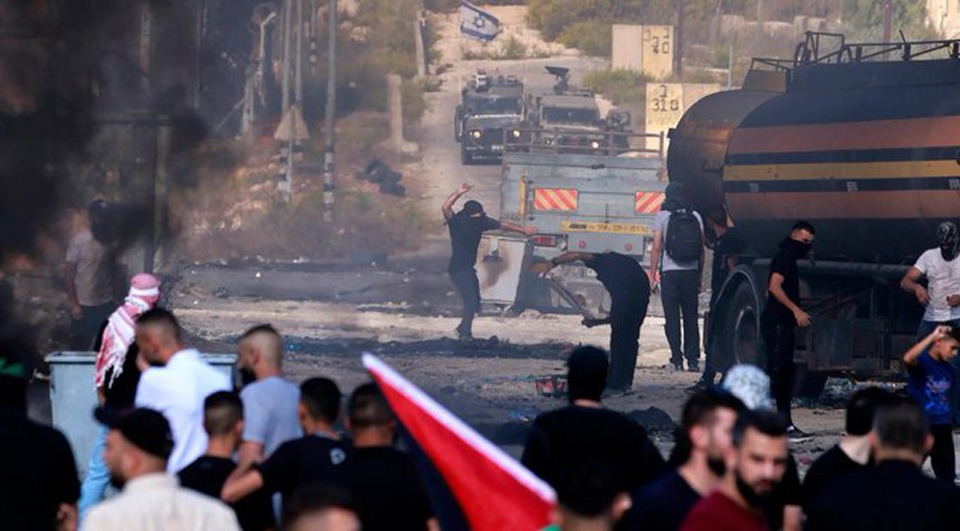Israel has ordered the evacuation of 1.1 million residents of northern Gaza, leading to the start of a ground campaign to dismantle Hamas and secure the release of Israeli hostages. This ground campaign is framed as a mission to dismantle Hamas and secure the release of Israeli hostages, following the October 7 attack known as Operation Al-Aqsa Flood. The attack resulted in over 1,000 Israeli civilian casualties and dozens of hostages taken, causing a psychological shock to the nation and exposing intelligence failures.
Israel gained significant international sympathy following the attack, with tacit approval from the U.S. and Western allies. They emphasized Israel’s right to defend itself and refrained from calling for restraint. Washington and European nations deployed their warships to the East Mediterranean, while the Biden administration pledged additional military aid weapons to Israel.
Despite widespread concerns that Gaza would face collective punishment, fears for civilian lives were amplified after the Israeli government announced it would cut off Gaza’s electricity, food, and water supply to the densely populated area.
The Palestinian statehood issue is hindered by a lack of political efforts and international diplomatic initiatives, with the Joe Biden administration’s lack of appointment of a US ambassador to Israel weakening its diplomatic presence in the conflict. The situation in Gaza has been untenable since 2007, with Israel blockading its borders, airspace, and territorial waters. This has worsened a growing humanitarian emergency, worsened by multiple conflicts.
The Abraham Accords, spearheaded by the Trump administration, failed to make substantial progress on resolving the Palestinian question, and the disappointment surrounding the “Deal of the Century” in January 2020 has added fuel to the fire. Gulf states like the United Arab Emirates and Bahrain, which normalized relations with Israel during the accords, have felt obliged to send humanitarian aid to Gaza and stress de-escalation to avoid criticisms that they are not helping the Palestinian people. Saudi Arabia has suspended further normalization talks orchestrated by the Biden administration, which Riyadh accepted with the hope of gaining advanced weaponry and US support for a domestic nuclear program.
Saudi Arabia has been cautiously normalizing with Israel, avoiding accusations of disregarding the Palestinian issue and avoiding backlash from regional divisions. This is due to concerns of Israel becoming drawn into a conflict with Iranian-backed groups in Syria and Tehran’s Lebanese ally Hezbollah. The US has called for renewed sanctions on Iran, pre-emptively blaming it for Hamas’ operation, risking enflamed regional tensions. Saudi Crown Prince Mohammad bin Salman and Iran’s President Ebrahim Raisi emphasized the significance of regional security and Islamic unity amid the ongoing conflict.
Saudi Arabia is looking to further play it cool with Iran while taking a “wait-and-see” approach to normalizing with Israel and putting extra US weaponry on hold. The primary responsibility for the conflict doesn’t rest on regional states alone; it is Israel’s Western partners that hold the most leverage and could take on a more purposeful role in addressing the conflict. The dire conditions in Gaza have largely been overlooked, and there is legitimate potential that unrest could spread to the West Bank, which has been under Israeli occupation since 1967. This is raising growing apprehensions among Western and European circles on the safety and well-being of Gazans.
The well-being of Gazans has been heightened by reports from humanitarian organizations like Doctors without Borders, which highlight a severe shortage of medical supplies in Gaza’s hospitals. The Norwegian Refugee Council warns that no humanitarian aid is being received in Gaza due to the increasing violence. Palestinians continue to suffer, and the situation is untenable for Israel and its citizens.
Israel’s security concerns are acknowledged, but it is crucial to acknowledge that a military offensive could exacerbate animosity towards Israel and perpetuate the cycle of violence. To address the immediate crisis, swift action is needed, including advocating for a cease-fire and establishing a humanitarian corridor for the Gaza Strip. Ending the unsustainable status quo is also crucial for a legitimate path for peace and stability.


